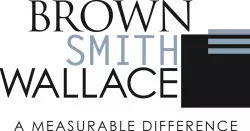In 2014, the Financial Accounting Standards Board (FASB) published four reporting alternatives to simplify U.S. Generally Accepted Accounting Principles (GAAP) for private companies. Now the FASB is making it easier for private companies to elect these alternative reporting methods by eliminating the so-called "preferability assessment."
Little GAAP
For many years, private companies and their stakeholders complained that the FASB catered too much to large, public companies and ignored the needs of smaller, privately held organizations that have less complex financial reporting issues. So, in 2012, the Financial Accounting Foundation (the FASB's parent organization) established the Private Company Council (PCC).
Its role is to amend areas of GAAP that are particularly difficult for private companies and advise the FASB on how to make those rules simpler, without compromising the reliability or relevance of information provided to financial statement users. So far, the FASB has signed off on these four alternative reporting options:
- Accounting Standards Update (ASU) No. 2014-02, Intangibles — Goodwill and Other (Topic 350): Accounting for Goodwill. Under this alternative, private companies may elect to amortize goodwill over a period not to exceed 10 years, rather than test it annually for impairment.
- ASU No. 2014-03, Derivatives and Hedging (Topic 815): Accounting for Certain Receive-Variable, Pay-Fixed Interest Rate Swaps — Simplified Hedge Accounting Approach. This allows nonfinancial institution private companies to elect an easier form of hedge accounting when they use simple interest rate swaps to secure fixed-rate loans.
- ASU No. 2014-07, Consolidation (Topic 810): Applying Variable Interest Entities Guidance to Common Control Leasing Arrangements. This option simplifies the consolidation reporting requirements of lessors in certain private company leasing transactions.
- ASU No. 2014-18, Business Combinations (Topic 805): Accounting for Identifiable Intangible Assets in a Business Combination. This alternative exempts private companies from recognizing certain hard-to-value intangible assets — such as noncompetes and certain customer-related intangibles — when they buy or merge with another company. It doesn't eliminate the requirement under GAAP to recognize and separately value other intangible assets acquired in business combinations, such as trade names and patents.
When these alternatives were originally issued, companies that didn't elect an alternative on or before its effective date were required to assess the "preferability" of the alternative as described in Accounting Standards Codification Topic 250, Accounting Changes and Error Corrections. While the preferability test isn't necessarily onerous, in some cases it could block a private company from using the simplified alternatives.
What's new
In March 2016, the FASB published ASU No. 2016-03, Intangibles — Goodwill and Other (Topic 350), Business Combinations (Topic 805), Consolidation (Topic 810), Derivatives and Hedging (Topic 815): Effective Date and Transition Guidance. This standard is effective immediately.
The updated guidance removes the effective dates from the four private company reporting alternatives. It also exempts private companies from having to make a preferability assessment if they adopt one of these accounting alternatives. Under the previous rules, a private company that adopted an accounting alternative after its effective date had to assess whether the alternative was preferable to its accounting policy at that time.
Forgoing an initial preferability assessment allows private companies to adopt a private company accounting alternative when they experience a change in circumstances or management's strategic plan. It also allows private companies that were unaware of an accounting alternative to adopt the alternative without having to bear the cost of justifying preferability.
Any subsequent change to an accounting policy election, however, would continue to require justification that the change is preferable under Topic 250.
Not for everyone
Private companies should check with their accountants before electing any of these alternative reporting options. Regulators, lenders and other stakeholders may require a private company to continue to apply traditional GAAP accounting standards. Moreover, the use of an alternative reporting method could create future headaches for companies that are large enough to consider going public or merging with a public company.
The content of this article is intended to provide a general guide to the subject matter. Specialist advice should be sought about your specific circumstances.

